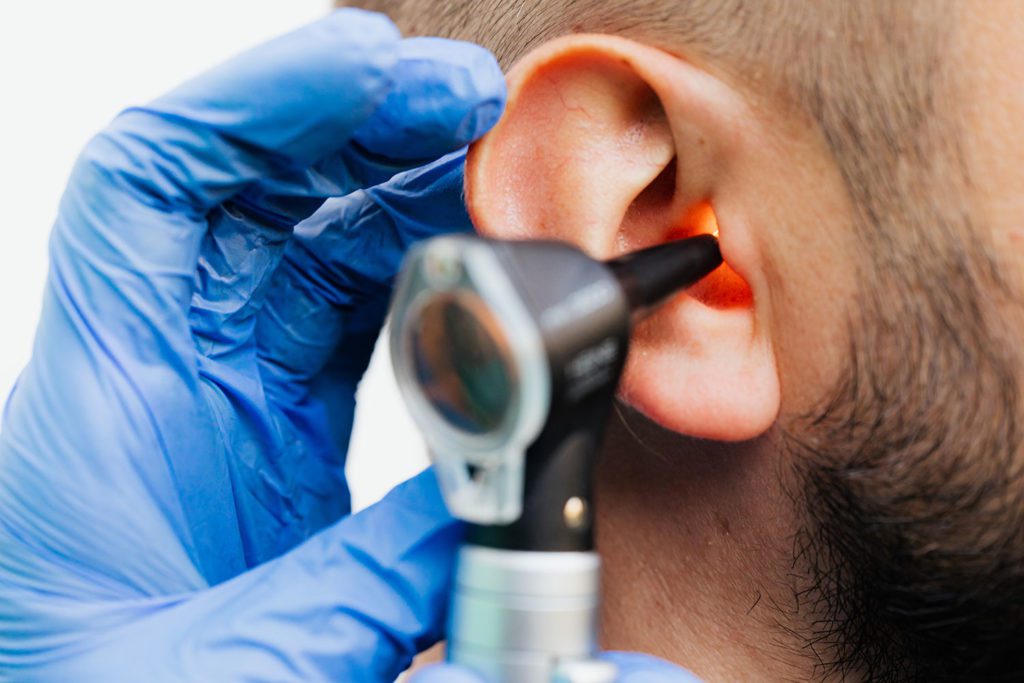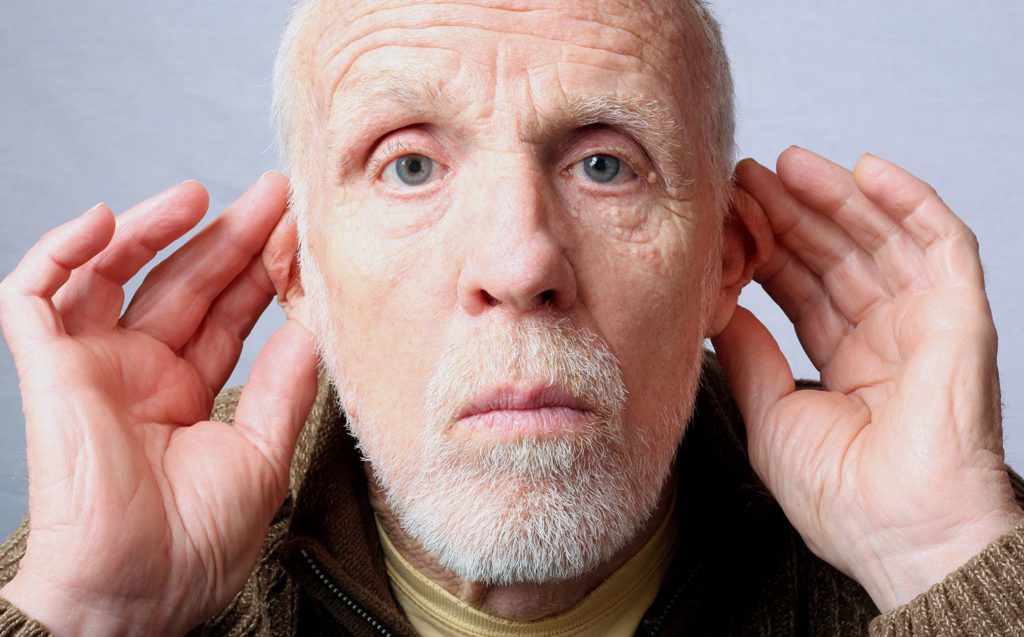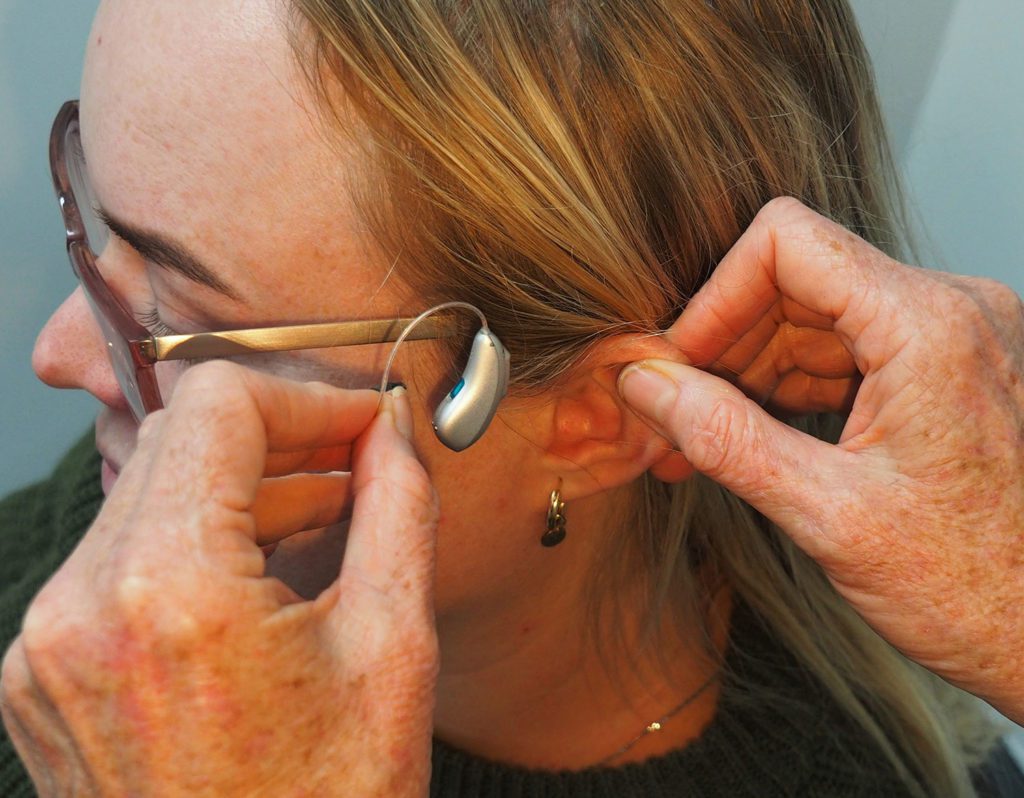Did you know that tinnitus is the number one disability claimed by veterans? If you are a veteran suffering from tinnitus, you may be eligible to receive disability benefits or compensation from the Department of Veterans Affairs.
5 Common Causes of Tinnitus
- Loud Noises
- Head Trauma
- Change in Pressure
- Medications
- Old Age
Tinnitus is common among the American population, with roughly one in 10 adults experiencing some form of the condition. Veterans have even higher rates than this due to head trauma and/or repeated loud noise exposure from gunfire, aircraft, machinery, and more. In 2021, more than 167,000 American veterans were diagnosed with tinnitus.
If you or your military spouse are interested in receiving veterans disability benefits for tinnitus, you will be happy to know that tinnitus is considered a VA disability. Presently, over 2.5 million former military members are receiving VA disability benefits because of tinnitus.
What Is Tinnitus?

Tinnitus is a disability that causes frequent or constant buzzing or ringing in one or both ears. It can also be described as a hissing or roaring sound, which can have different high or low-pitched tones. The noise can only be heard inside of one’s own head and is not audible to others.
The word “tinnitus” comes from a Latin root meaning “to jingle” and is a very common disability, especially among veterans. You may be wondering, Is tinnitus a VA disability, eligible for disability compensation? The answer is yes. In fact, tinnitus is the most common VA disability among veterans.
Some cases of tinnitus are worse than others. While some people with tinnitus barely notice it at all, others can become extremely bothered by it. For many veterans, tinnitus serves as a reminder of war and generates a negative emotional response, making them feel as if there is no escape from unwelcome memories. This, in turn, can lead to secondary conditions including mental health issues like depression, sleep apnea, insomnia, and anxiety.
So, is there a cure for tinnitus? The truth of the matter is that tinnitus treatment depends on the underlying cause of your condition. If your tinnitus is caused by hearing loss from loud noises or old age, a hearing aid can often help resolve the issue. Some cases of tinnitus can be caused by an ear canal blockage or infection. When the infection or blockage is healed, the tinnitus will go away.
However, there are also many cases of tinnitus caused by permanent damage that can’t be cured. In these cases, a doctor may recommend that you use a white noise machine when at home and at night to make your tinnitus less noticeable. You may also benefit from using a masking device, which is worn in your ear and produces continuous, low level white noise to help suppress tinnitus sounds.
5 Causes of Tinnitus

Since you can only receive VA disability benefits for tinnitus with a service connection to your time in the military, it’s important to identify the cause of your tinnitus symptoms.
Loud Noises
Repeated exposure to loud noises, like those common in military training and combat, can lead to tinnitus. Your inner ear contains minuscule, fragile hairs, called cochlea. When your ear comes into contact with sound waves, these cochlea move, which triggers signals to travel up your auditory nerve, from your ear to your brain. Your brain deciphers the signals as sound.
However, when you constantly experience loud noises like gunfire or machinery, it can cause your cochlea to break or bend. Damaged cochlea can falsely trigger electrical signals to your brain, causing you to “hear” noises that aren’t really there.
Many veterans suffer from a hearing impairment like tinnitus or military hearing loss due to the loud noises associated with being a member of the armed forces. If you believe your tinnitus is caused by your time in the military, you may be entitled to receive VA disability benefits.
Head Trauma
In some cases of head trauma, your inner ear or nerves connected to the ear can be affected. Sometimes, trauma to your head or neck can also damage brain functions that control hearing. If your tinnitus is caused by head trauma, it will usually only affect one ear. If you experienced head trauma or a traumatic brain injury during your time in service and now have tinnitus, the two may be linked, and you may be able to enroll in veterans disability benefits.
Change in Pressure
Your ears can become clogged up with earwax, foreign material like dirt, or fluid (in the case of an ear infection.) This can lead to a change in pressure, which can cause tinnitus. The good news is that if your tinnitus is only caused by an ear canal blockage or infection, it isn’t permanent. Once the blockage is removed or the infection has healed, your tinnitus will go away on its own.
Medications
Some medications can cause or worsen tinnitus. In these types of cases. higher doses of the medicine will make the tinnitus worse. However, when you cease usage of the medication, the tinnitus stops or gets much better. A few types of medication that are known in the medical world to cause tinnitus as a side effect are antidepressants, diuretics, nonsteroidal anti-inflammatory drugs, cancer drugs, and some antibiotics.
Old Age
Perhaps the most common cause of tinnitus is related to old age. As you get older, your nerve fibers decline in number, which can lead to a variety of hearing issues, including tinnitus. Unfortunately, there is no way to cure tinnitus caused by aging, but your doctor may be able to give you a hearing aid or prescribe medications to help minimize the symptoms of your tinnitus.
How Does the VA Rate Tinnitus?
When you file any type of VA claim, the Department of Veterans Affairs uses a VA disability rating system to determine how severe a disability is and, therefore, how much VA compensation you are eligible to receive. Your disability rating for a VA disability claim is given on a scale of 0-100%, with 0% disqualifying you from receiving any monthly compensation (though you may still receive an ancillary VA benefit like health care) and 100% granting you the maximum VA benefit amount.
Now you may be asking, what is the VA disability rating for tinnitus? The maximum VA disability rating for tinnitus is only 10% regardless of whether your condition affects one ear or both. For tinnitus, the VA does not take into account the bilateral factor, a statute by which an additional 10% of a VA disability rating is commonly added if the condition affects both sides of the body. As of December 2022, a 10% VA disability rating awards $165.92 in special monthly compensation.
VA Proposed Changes for Tinnitus Claims
Currently, military hearing loss is considered a separate disability with a unique hearing loss VA rating. So, veterans with both tinnitus and hearing loss associated with their service can get two separate VA disability ratings to receive two different sets of compensation.
However, changes may be coming soon to the VA rating system. In February 2022, the VA proposed diagnostic code changes that would group tinnitus and military hearing loss together, but they have not gone through yet. If they go through, tinnitus and hearing loss will no longer be separate disabilities with separate disability ratings.
Underneath the proposed changes to the diagnostic code, veterans with tinnitus would need to meet higher standards to receive any VA benefits. In order to get VA compensation for it, a veteran’s case of tinnitus would have to be related to hearing loss or another service-connected disability. Veterans would no longer be able to receive VA benefits for tinnitus itself. This would decimate the number of veterans who could qualify for VA compensation for tinnitus, although veterans who are already receiving benefits for tinnitus would be grandfathered in and continue getting them.
It’s important to note that these changes to the VA rating system related to tinnitus and military hearing loss may not even go into effect. Right now, the VA is accepting feedback on the proposed plan to change the system of rating disabilities. There is no announced date for when these changes to the diagnostic code would go into effect, if ever.
Common Tinnitus Tests

Tinnitus is an invisible disability, but there are some tests that your doctor can order to help to determine if the ringing or buzzing in your ear is tinnitus. You may need one or more of the below tests to pinpoint the specific type of tinnitus you are experiencing and what kinds of treatments can give you tinnitus relief.
Hearing test
An audiological exam, or hearing test, measures your ear’s ability to hear sound at various pitches and frequencies. You will enter a soundproof booth and listen to a series of tones, recording each time you hear a tone by pushing a button. The test allows doctors to measure how well your middle ear, inner ear, ear bones, and ear canal function.
Why is a hearing test used to diagnose tinnitus? Hearing loss and tinnitus often go hand and hand. If you are experiencing hearing loss, it may make the ringing in your ear even worse. A hearing test can also help determine the pitch and intensity of tinnitus.
Movement
Another way that a doctor may measure the level and origin of tinnitus is by studying the effect your body movement has on your tinnitus symptoms. Moving your eyes, neck, jaw, arms, and legs can intensify or reduce the level of your symptoms. Your doctor will ask you to note any changes you notice while going through a series of movements.
Imaging
A CT scan or MRI can detect internal structural causes of ringing in the ear. Imaging produces detailed pictures of the inner ear and surrounding area, identifying any problems leading to hearing loss or tinnitus. Any blood vessel abnormalities near the ear could cause ringing in the ear, along with tumors or other growths that can press on the inner ear. Imaging is the only way to detect these conditions.
Lab work
Blood work can also help identify the causes of tinnitus because several medical conditions can lead to ringing in the ear. Allergies, anemia, thyroid problems, heart disease, and diabetes are just a few conditions that can be to blame for your tinnitus. Certain medications can cause this complication. Treating the underlying medical condition can help symptoms lessen or go away entirely.
Tinnitus Treatments

Tinnitus is one of the most common disabilities among veterans, and thankfully, there are many tinnitus treatment options available. You and your doctor can work together to figure out what combination of treatments works best for your individual symptoms. It’s essential to become educated in tinnitus treatments and keep updated on new treatment options.
Masking device
A masking device produces pleasant, low-level sounds, or “white noise” to cover the ringing or buzzing sound caused by tinnitus. One type of masking device is worn in the ear like a hearing aid, but instead of amplifying sound like a hearing aid, the masking device emits low volume white noise. These devices can be comfortable and small enough to be barely visible in the ear.
Another type of masking device is a white noise machine, which can be found in many shapes and sizes and placed anywhere you need it. Many people find comfort in having a white noise machine by the bed to help them sleep. These machines produce soothing sounds like ocean waves, rain, or instrumental music. Using headphones can make white noise machines even more effective. You can even download white noise apps to your mobile device to avoid purchasing a separate device.
Hearing aid
Since hearing loss can often accompany tinnitus, some people find relief when using a hearing aid. When the hearing aid amplifies outside noise, those sounds can replace ringing or buzzing in the ear. Improved hearing removes the focus from uncomfortable noises caused by tinnitus.
Treating underlying medical conditions
It is wise to address any underlying medical conditions like diabetes or high blood pressure that may be to blame for your tinnitus symptoms. Sometimes a buildup of earwax can be causing problems, so getting that removed may help. A change in medication may be necessary to improve ringing in the ear but only do some as directed by your physician.
Counseling
Some patients have successfully used cognitive-based therapy (CBT) to treat tinnitus symptoms. CBT can help people manage stress, anxiety, and depression, all of which can contribute to tinnitus. Therapy will also equip tinnitus sufferers with coping skills to manage symptoms.
Tinnitus retraining therapy works on a conscious and subconscious level to train your brain to ignore the sounds of tinnitus. The treatment consists of wearing a device that produces noise that targets the source of the tinnitus. Wearing the device is coupled with psychological training, designed to train the brain to recognize the noise as non-threatening and ultimately ignore it.
Lifestyle changes
Keeping a healthy lifestyle is an integral part of tinnitus treatment. Avoid things like alcohol, caffeine, and nicotine that can worsen ringing in the ear. Protect your hearing by wearing hearing protection around loud noises and keep volume levels low. Seek out support groups to connect you with others who share your symptoms. Additionally, you might want to try alternative therapies. Many have found tinnitus relief from acupuncture.
How To Establish a Service Connection for Tinnitus

When it comes to getting VA disability benefits for tinnitus, you will need to prove to the Department of Veterans Affairs that your tinnitus symptoms have a service connection to your time in the U.S. armed forces. Many veterans who file a VA disability claim for tinnitus are denied benefits because they did not provide enough information to establish a service connection. You cannot receive veterans benefits for tinnitus that is not a result of an illness or injury sustained during your time in service. So, if your tinnitus is due to old age or recent illness outside of service, you are not eligible to receive VA compensation for tinnitus.
If you are confident that the symptoms of your tinnitus resulted from military service, you may be wondering, How do I prove tinnitus for VA disability? How do you prove tinnitus is service connected? To be blunt, proving that your tinnitus is a service-connected disability to the VA department is often easier said than done. However, it is very doable if you follow the steps to provide proper evidence.
To prove the service connection of your tinnitus, you will need to present proof of both your condition and an event that occurred during active duty that caused your condition to the VA office. Simply stating your symptoms or writing them down on a VA form is not enough. In most cases, you will need to get an official diagnosis of tinnitus from an audiologist. The VA may schedule you for a C&P exam.
You will also need to provide evidence that some event during military service, such as a traumatic brain injury during active duty or frequent loud noise exposure, led to your tinnitus. You can gather this information from your service records.
Getting a medical opinion from a professional who believes that your tinnitus symptoms are linked to your military service is also beneficial. A doctor from a hearing center can help provide testimony to how and when your symptoms of tinnitus began happening. You may also want to consider employing the services of a VA disability lawyer to help establish the service connection.
Tinnitus, a condition that causes a person to hear sounds that aren’t really there, is the top veterans disability claim in the United States among former servicemen and women. While tinnitus is more common among veterans, it is also widespread among the general U.S. population.
Symptoms of tinnitus include hearing a ringing, humming, buzzing, hissing, or roaring noise frequently or consistently that no one else seems to perceive. Some causes of tinnitus include loud noises, head trauma or traumatic brain injury, change in pressure, medications, and old age.
If you are a veteran who believes you may have tinnitus, it’s important to receive a diagnosis and treatment from a doctor. As long as you can establish a service connection for your tinnitus, you are eligible to receive VA disability compensation in the form of monthly payments and benefits based on your VA disability rating.